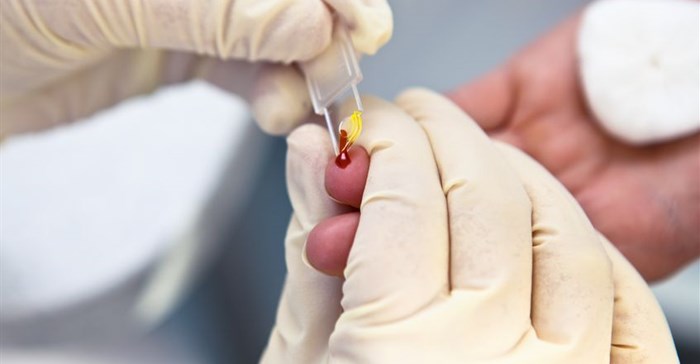
Subscribe & Follow
Advertise your job vacancies
Joining hands in fighting HIV, TB and STIs
A R3.6m contribution from De Beers and Workplace Health, a business unit of EOH, towards providing health screening in the mining communities of Musina and Blouberg in Limpopo emphasises the power of partnerships in making the National Strategic Plan (NSP) 2017-2022 for HIV, TB and STIs a reality.
A total of 10,000 community members received comprehensive health screening and 100 micro enterprises were trained in and the South African Business Coalition on Health and Aids (SABCOHA) BizAIDS module that includes business management, health risk management and succession planning. The objectives of the training are not only to build sustainable businesses but to also provide skills to owners and partners of small businesses to become health promoters within their communities.
“We continue to take the health of our communities, including our employees very seriously. This can be seen in the remarkable results we have achieved through our 90 90 90 strategy. We have also focused our efforts on screening more than 90% of our employees for TB through our medical surveillance programme and wellness campaigns.
“However, these programmes cannot be limited to our employees only. We are committed to reaching out and making a positive impact in the health of the communities which are hosting us.” Commenting on the mining company’s role towards achieving the goals set out in the NSP,” says Phillip Barton, CEO, De Beers Consolidated Mines.
Community screening
The health screening project began in 2009 when the South African National Aids Council (Sanac) embarked a programme to ensure business participates in the HIV Counselling and Testing Campaign (HCT).
The objectives of the project include:
- To conduct HIV/AIDS and wellness screening in remote areas where communities have not been tested and refer those with positive results to primary health care facilities.
- To focus on micro-enterprises where entrepreneurs may be affected who support families and, in some instances, create employment.
- To contribute to the reduction of stigmatisation around getting screened and knowing your HIV status.
- To create opportunities to educate the community on other lifestyle diseases and how to prevent them.
“The fight against HIV & TB morbidity and mortality is the kind that will be won through partnership and collaboration between various stakeholders and government.
“Health has been taken to the people, and community members received comprehensive health screening. However, more importantly, they acquired valuable information regarding their personal health, which is one of the most priceless gift any person can ever receive - because it empowers the individual to make informed decisions regarding their health, says Dr Reginald Setlhakgoe from EOH.
Related
#WorldTBDay: Minerals Council SA launches multiple language Ex-Mineworkers Occupational Lung Disease Guide 3 days Cassava shuffles leadership deck, Ziaad Suleman new SA CEO 17 Feb 2025 #MiningIndaba: Minerals Council says Trump funding freeze won’t affect mine HIV treatment 5 Feb 2025 Study revolutionises global TB treatment 28 Aug 2024 New TB skin test could offer cheaper and easier way to detect the disease 5 Apr 2024 Next phase of TB vaccine clinical trial sparks hope of game-changing results – top SA scientist 28 Mar 2024








